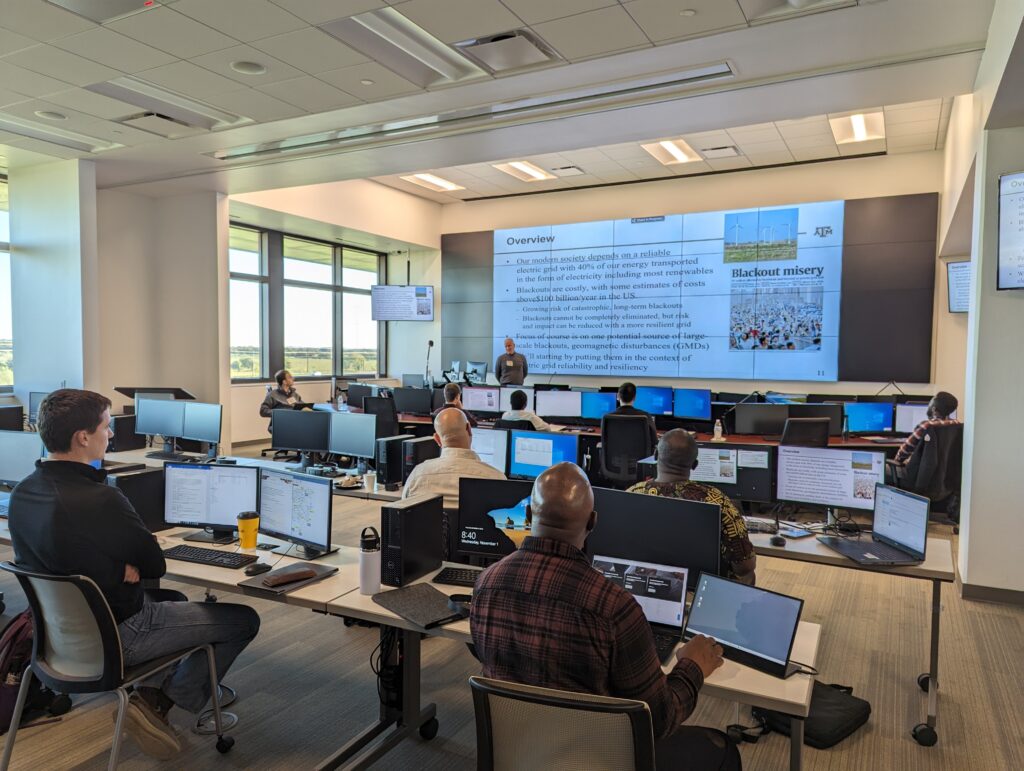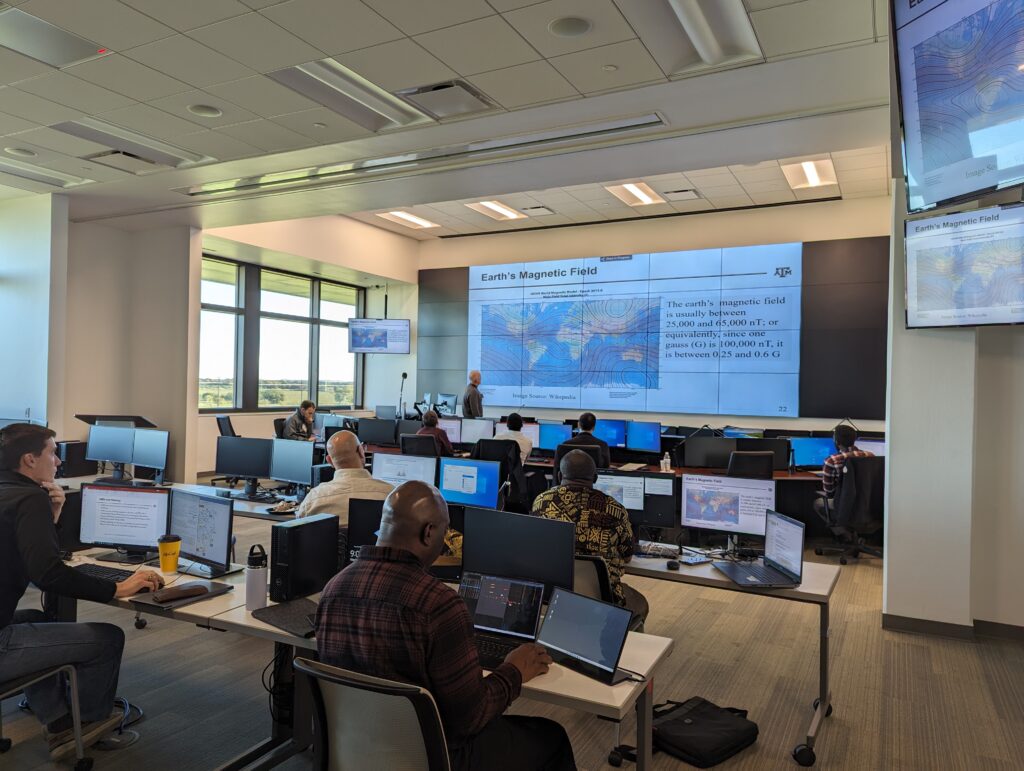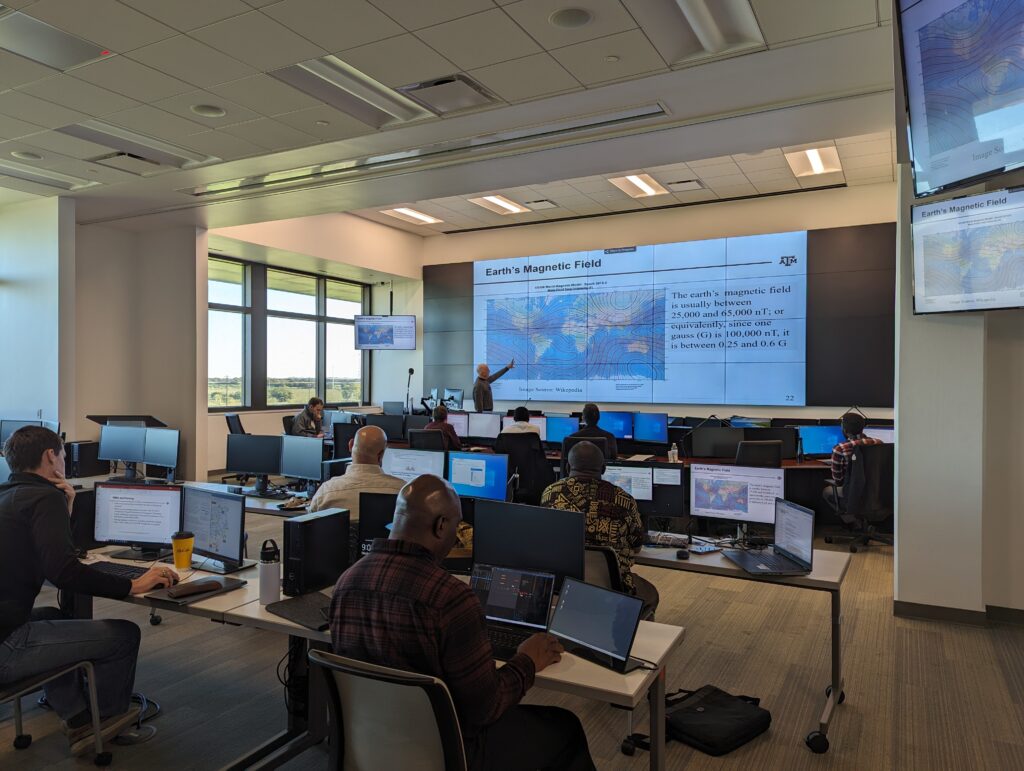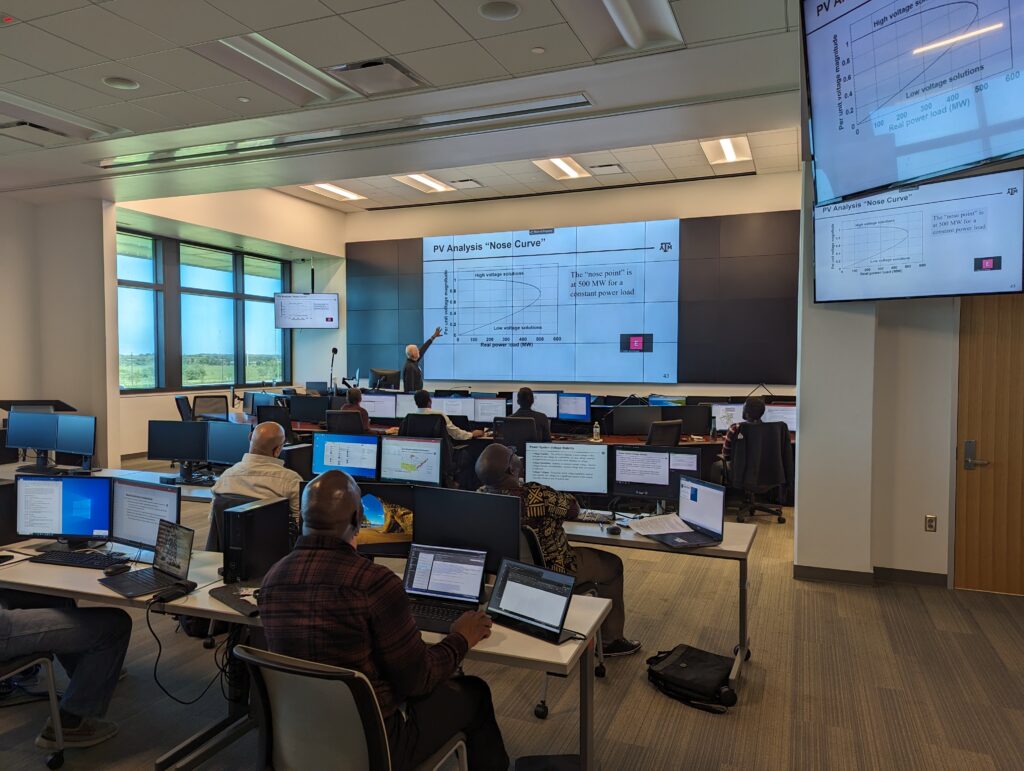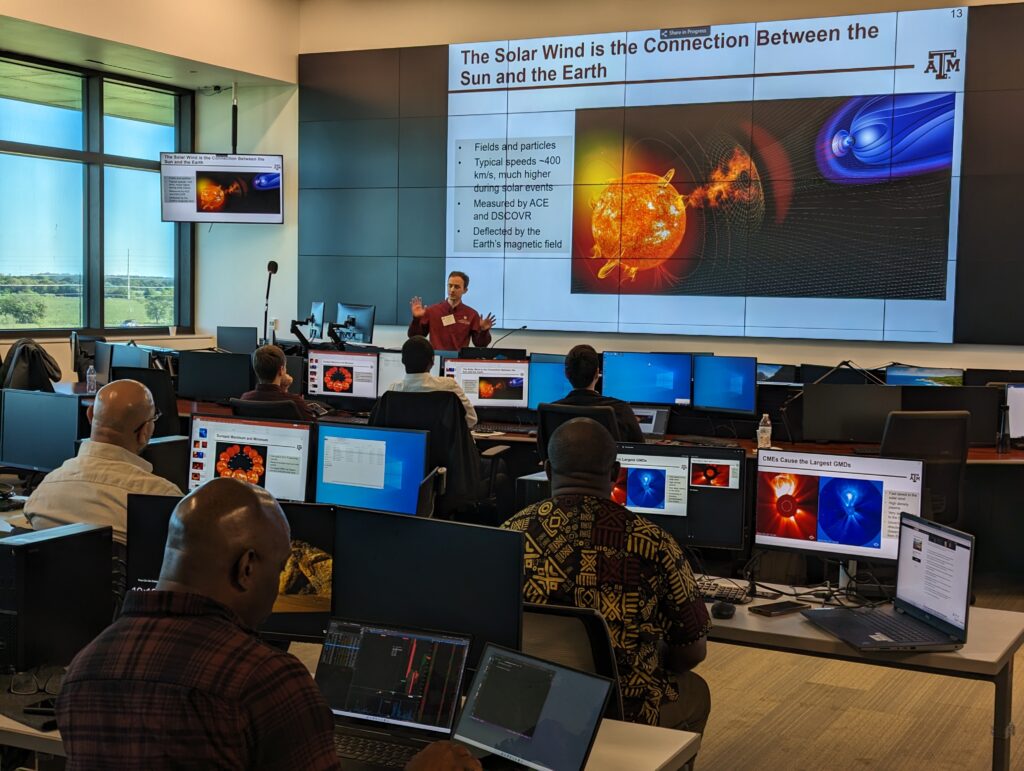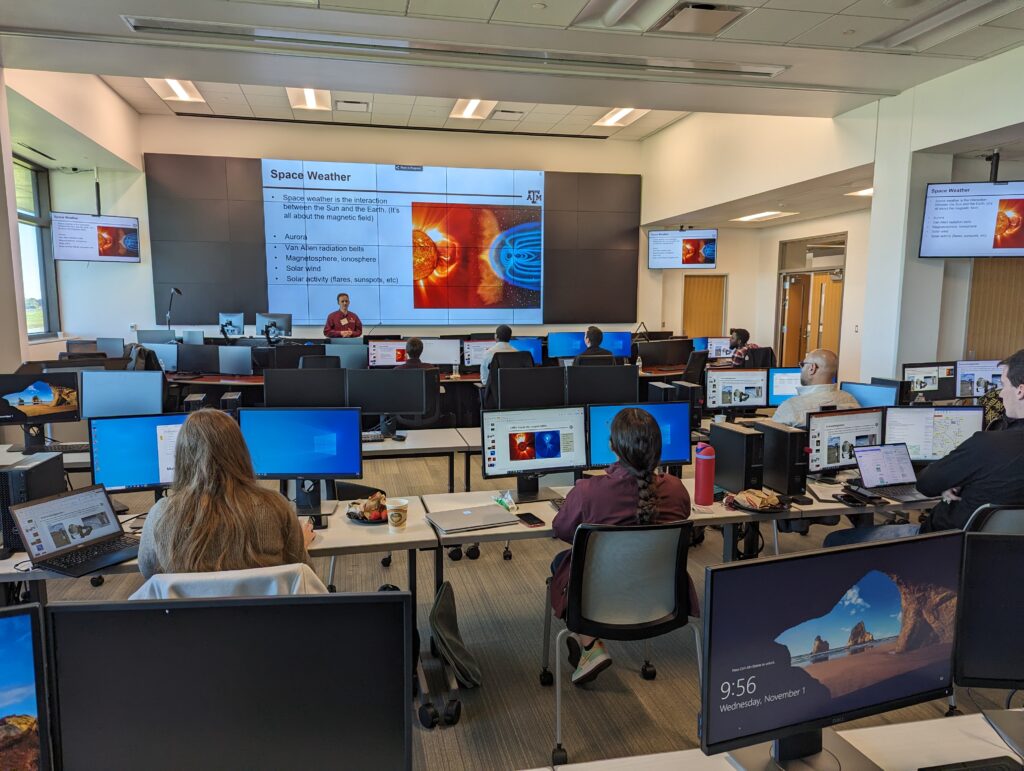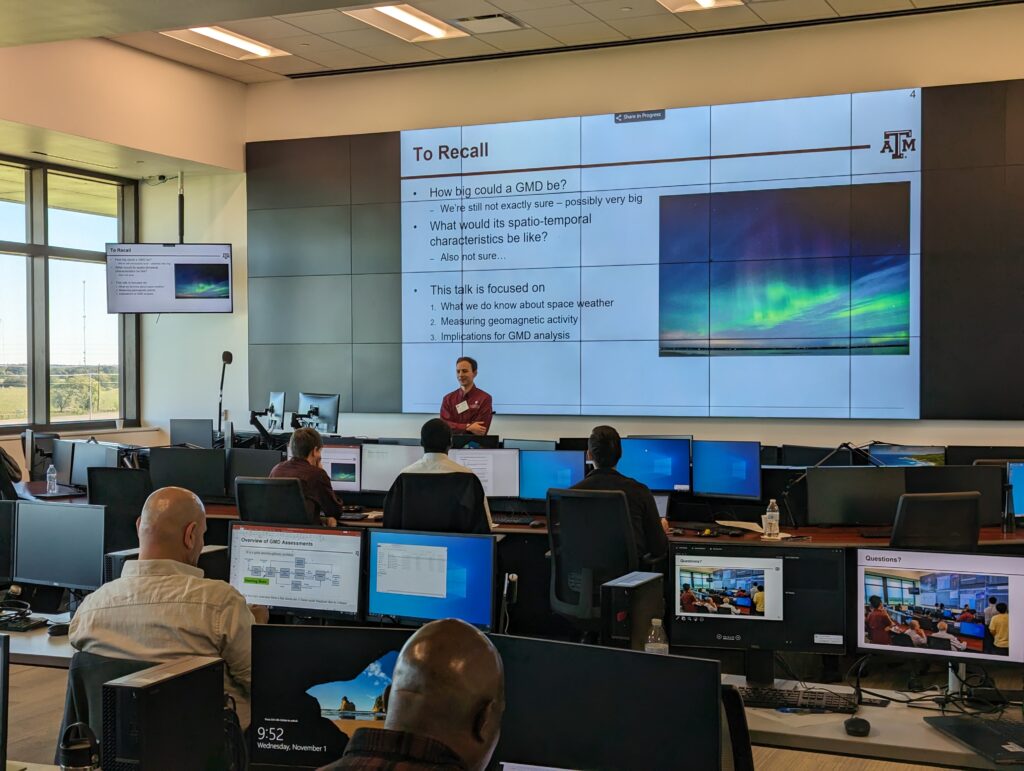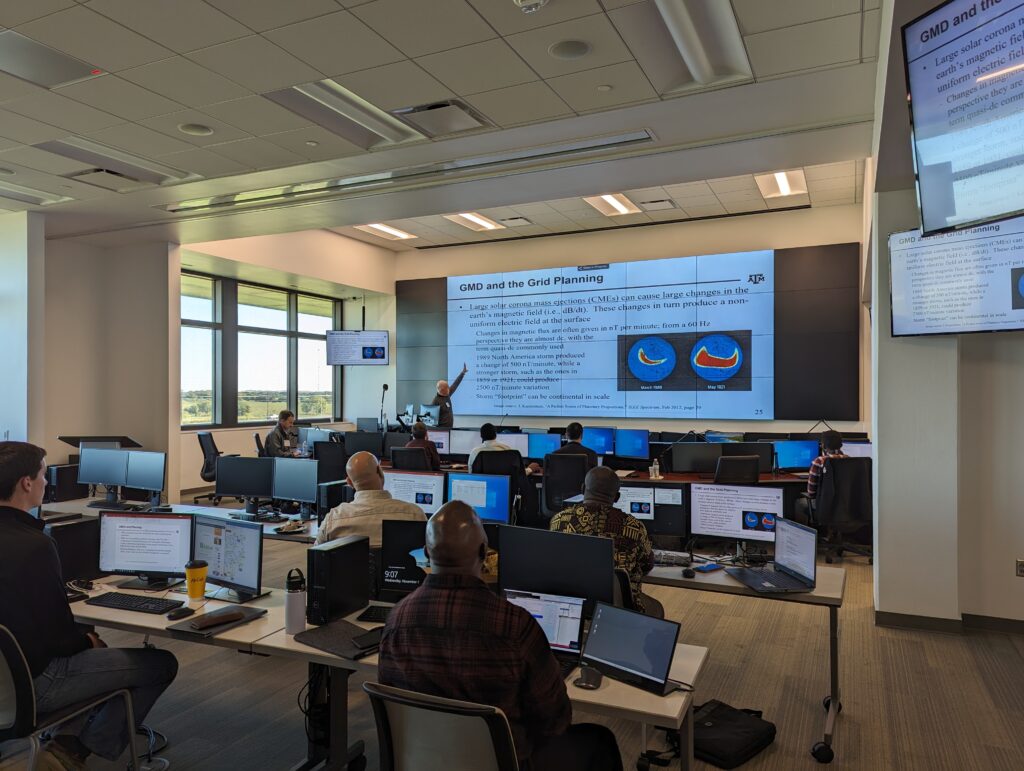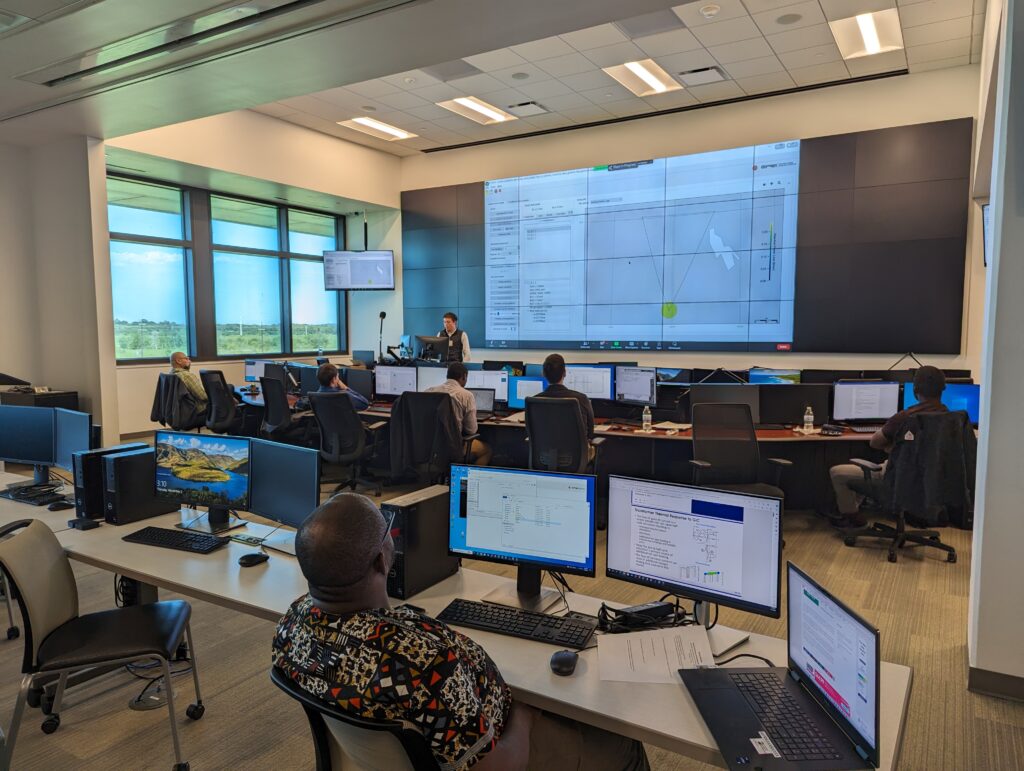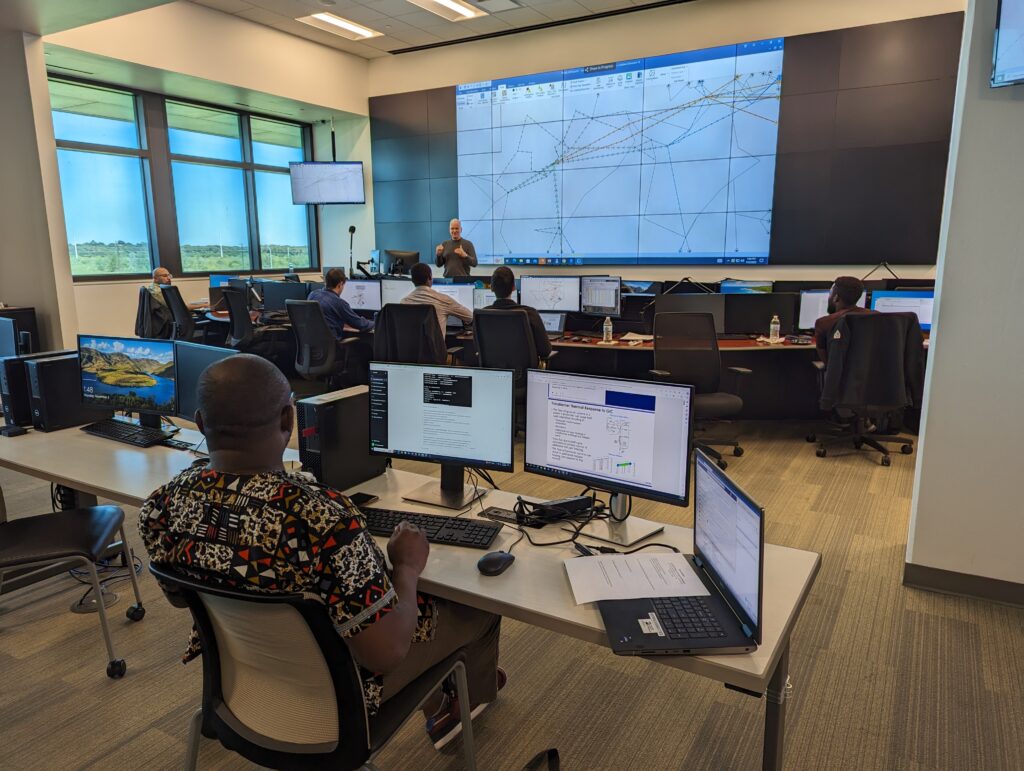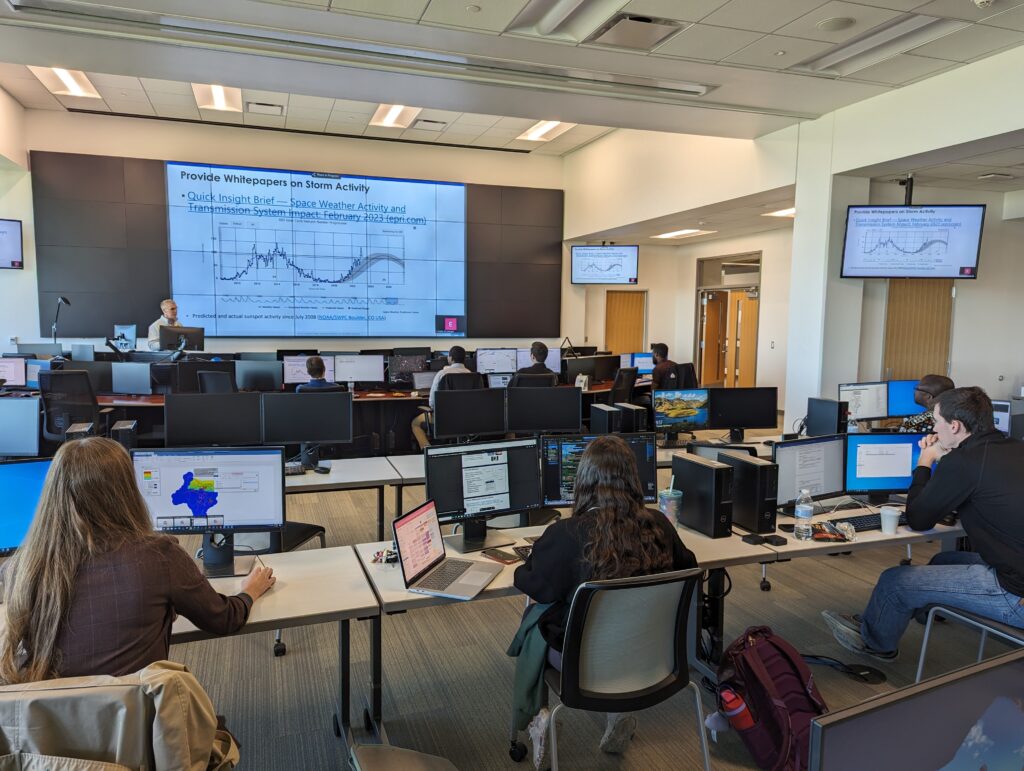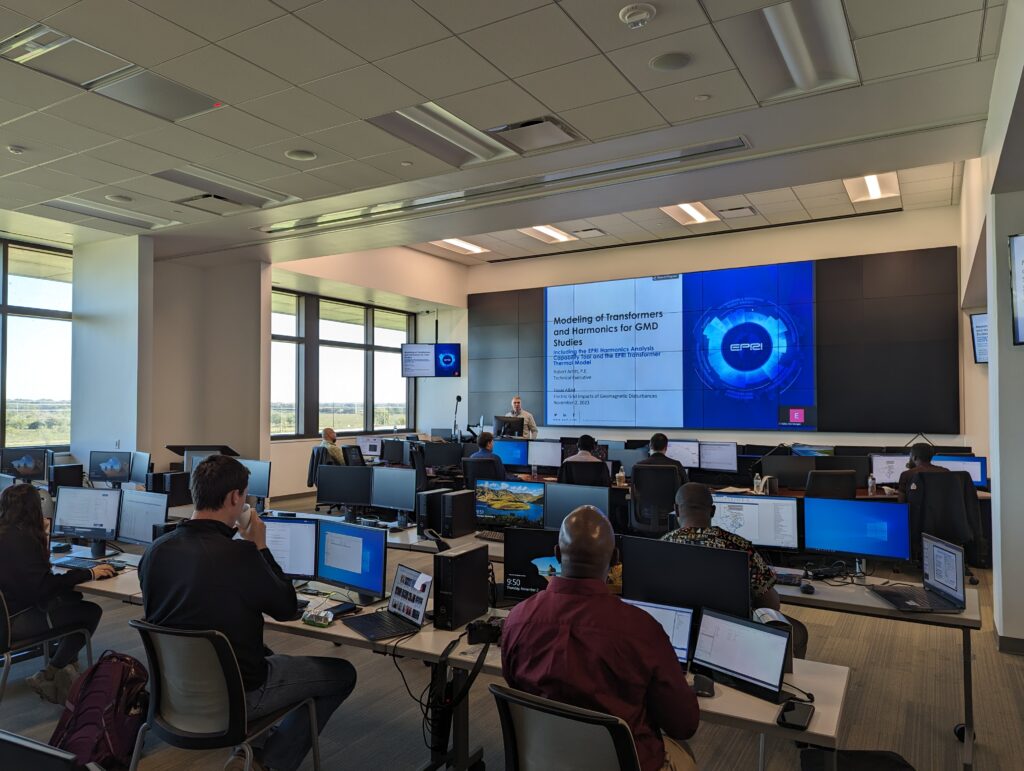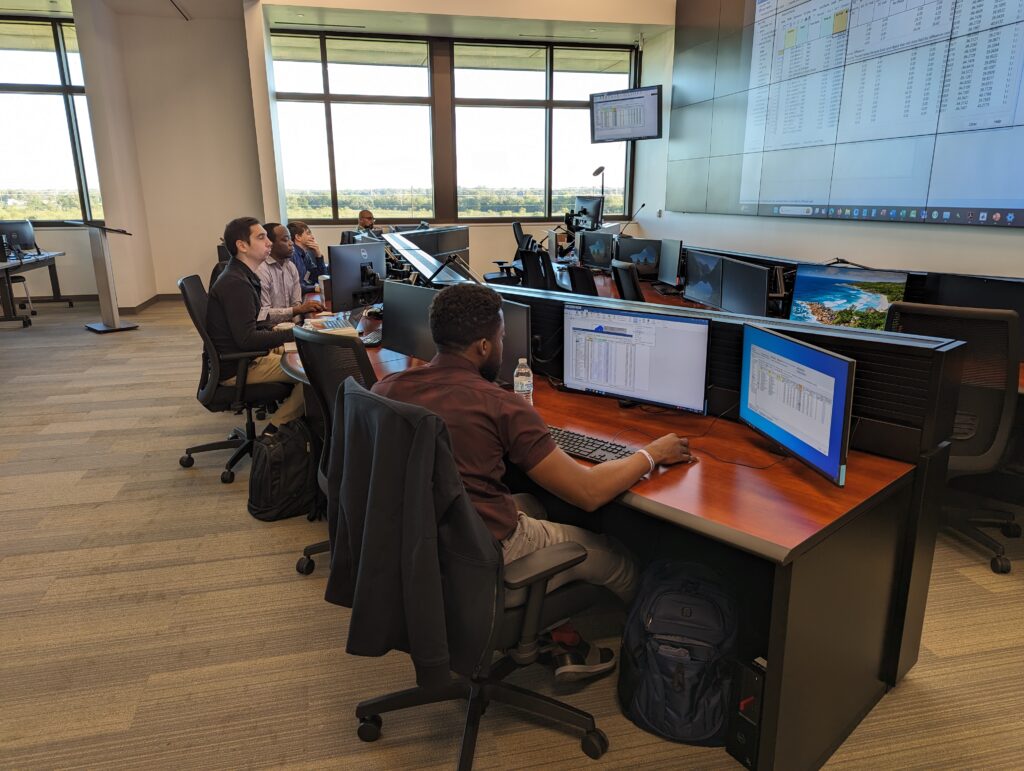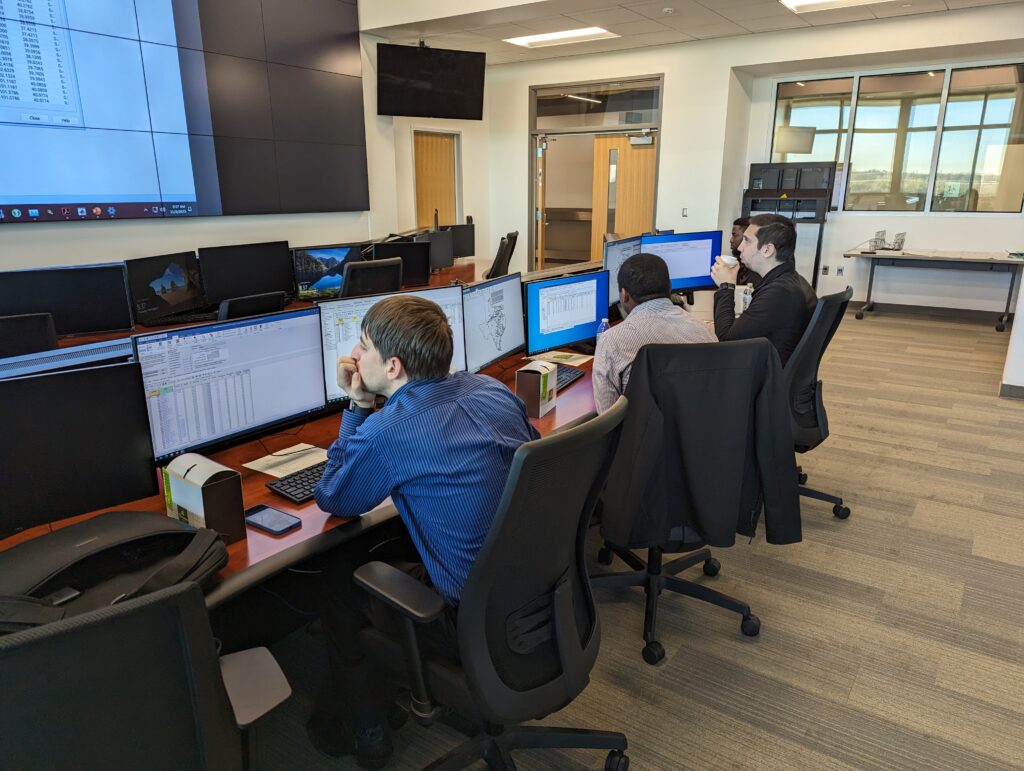(Photos Below)
Geomagnetic disturbances (GMDs), caused by solar coronal mass ejections, have the potential to significantly impact the operation of the high voltage electric grid by causing geomagnetically induced currents (GICs). Over the last decade there has been significant research, industry interest, and regulatory concern about the impact of GMDs on the high voltage electric grid. The purpose of this two-day short course is to put the GMD issue into proper perspective by providing a comprehensive coverage of what is currently known about the impact of GMDs on the grid, the tools being used for their assessment in planning and operations, and the current areas of research.
The course philosophy is to provide in-depth coverage of the topics, but to do so using a practical, hands-on approach. For example, the course provides a detailed consideration of what is needed to do the GMD assessments required for NERC TPL-007-4, and also contains an interactive, real-time simulation of the operational impacts of GMDs on the grid. Throughout the course concepts will be illustrated using common industrial tools including those from EPRI and PowerWorld Simulator. Collectively the three course instructors have wide experience in this area doing electric power system studies, software tool development, research and engineering education (Hours: CEU 1.4, PDH 14).
Topics
- Overview and history of electric grid geomagnetic disturbance impacts
- Geomagnetic disturbances: from the Sun to the Ground
- Power flow modeling of geomagnetically induced currents (GICs)
- Ground model impact on geomagnetically induced currents
- Hands-On: interactive, real-time electric grid simulations of GMD impacts
- Real-time monitoring, analysis and visualization of geomagnetically induced currents
- NERC TPL 007 (Transmission System Planned Performance for Geomagnetic Disturbance Events)
- Transformer modeling for GMD studies
- Modeling of harmonics for GMD studies, including the EPRI Harmonics Analysis Capability Tool
- Hands-On: EPRI Harmonics Analysis Capability Tool
- Measures for GMD mitigation
Dates and Times
November 1-2, 2023, 8:00 a.m. – 5:00 p.m.
Location
The short course was held in person at the Center for Infrastructure Renewal on the RELLIS Campus.
Instructors

Tom Overbye is a Professor and holder of the O’Donnell Foundation Chair III in the Department of Electrical and Computer Engineering at Texas A&M University (TAMU). He received his BS, MS, and Ph.D. degrees in Electrical Engineering from the University of Wisconsin-Madison. Before starting his academic career he was employed with Madison Gas and Electric Company, working in their planning and operations departments. He is the original developer of PowerWorld Simulator (a widely used power system planning tool), a co-founder of PowerWorld Corporation, and an author of a widely used Power System Analysis and Design book. He is a recipient of the IEEE Power and Energy Society Outstanding Power Engineering Educator Award, an EEE Fellow, and a member of the US National Academy of Engineering. Tom is a leading researcher in the electric grid impacts of geomagnetic disturbances (GMDs) and was also responsible for the integration of GMD analysis into PowerWorld Simulator.
Bob Arritt is a Technical Executive at the Electric Power Research Institute (EPRI). He received a BS, magnum cum laude, in electrical engineering from West Virginia Institute of Technology in Montgomery, West Virginia. He received a MS degree in electrical engineering from Worcester Polytechnic Institute in Worcester, Massachusetts. His current research activities include leading the geomagnetic disturbance work (GMD), system transients, harmonics, and protection. Mr. Arritt joined EPRI in 2007. Prior to joining EPRI, Mr. Arritt worked for Raytheon in Sudbury, MA where he worked in the Power and Electronic Systems Department. At Raytheon he was awarded the 2006 Raytheon Technical Honors Award for Peer and Leadership Recognition for Outstanding Individual Technical Contribution and also received a 2005 Raytheon Author’s Award for design of a Phase-Shifted Transformer for Harmonic Reduction. Since at EPRI, Bob has been awarded the Chauncey Award for his outstanding innovative and achievements in science and technology. Mr. Arritt holds a US Patent as the lead inventor for “Method for Detecting an Open-Phase Condition of a Transformer,” has authored several technical paper, is an IEEE Senior member, and Professional Engineer licensed in the State of Tennessee.
Adam B. Birchfield, Ph.D. is an Assistant Professor in the Department of Electrical and Computer Engineering. Prior to this he was a research engineer at the Electric Power Research Institute (EPRI). He received the B.E.E. degree from Auburn University in 2014, M.S. in electrical and computer engineering from the University of Illinois at Urbana-Champaign in 2016, and Ph.D. in electrical engineering from Texas A&M University in 2018. Dr. Birchfield’s research is in power system modeling, large system transient dynamics, applications of synthetic power grid datasets, and the resilience of power systems to high-impact, low-frequency events.
Andres Ovalle is a Senior Engineer/Scientist with the Power System Studies team at the Electric Power Research Institute (EPRI). His current research activities focus on modeling of transmission and distribution power systems, power system protection and impacts of geomagnetic disturbances on power systems. Andres joined EPRI in 2018. Prior to joining EPRI, he was with the Grenoble Electrical Engineering Laboratory (G2E-lab) and the French National Railways Company (SNCF) for approximately 2 years where he worked as a post-doctoral research engineer in the use of energy storage for the support of electrified railways. Andres received B.S.E.E. and M.E.E. degrees from the Universidad de Los Andes, Bogota, Colombia, and a Ph.D. degree in Electrical Engineering from the Université de Grenoble Alpes, Grenoble, France.
Scott Dahman has served as Director of Business Development at PowerWorld Corporation since 2003, where he conducts consulting studies and marketing efforts for the company’s software and services. He has performed numerous studies since 2013 of the impact of GMD and HEMP across the major North American interconnected synchronous power grids. He also has several years of experience in manufacturing, strategic material sourcing, and corporate financial and operations analysis at Emerson Electric Company, a multinational industrial automation systems manufacturer. He also served as a consultant and project manager at privately held Zurheide-Hermann Consulting Engineers, where he led construction design projects. He obtained a B.S. in Electrical Engineering and a Master of Business Administration from Washington University in 1993 and 1994, respectively, and an M.S. in Electrical Engineering from the University of Illinois at Urbana-Champaign in 2003. His research interests included power systems analysis, economics, and financial risk management. He is a registered Professional Engineer in Illinois.
